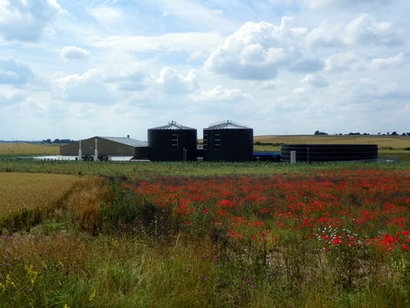
A consequence of the lockdown has been the large amount of additional organic wastes generated by the closure of markets for food and drink producers such as farms, fisheries and breweries. To address this situation, regulators in England, Scotland and Wales have contacted ADBA and the REA to assess the AD industry’s capacity to take on this surplus waste for recycling into green energy and biofertilisers.
The UK-wide survey will help identify suitable AD plants for the various feedstock types. It also aims to assist Defra, the regulators and industries that generate biodegradable waste in identifying the overall spare capacity available to treat feedstock and prioritise recycling through AD; favouring it over other types of disposal lower down the waste hierarchy, such as energy recovery, incineration and the most environmentally harmful option, landfill.
ADBA and the REA will use the information from the survey to match suitable AD operators with the farmers and other food/drinks supply chain organisations that have surplus that needs to be recycled. This aims to ensure that organic waste is correctly treated and that AD operators have more opportunities to source feedstock throughout lockdown measures.
“In these extraordinary times, everyone must pull together to address the difficulties caused by the COVID-19 lockdown” said Charlotte Morton, Chief Executive of ADBA. “This survey of AD's spare capacity to treat various types of organic wastes shows how our industry can proactively play its part in supporting farmers and food and drinks producers with their surplus feedstock. Most importantly, it delivers a solution that not only tackles the current waste surplus crisis, but also, by recycling organic wastes into biogas for power, heat and transport as well as biofertilisers for agriculture, sustains the economy and establishes a building block towards a green recovery from the COVID-19 pandemic. We are proud to deliver such a valuable service to society and urge all AD operators to complete the survey so that our industry's potential to help is fully assessed and realised, now and in the future.”
Dr Nina Skorupska CBE FEI, Chief Executive of the REA, added that it is the role of industry associations to ensure that members and the wider industry can operate as normally as possible through these unprecedented times and that with lockdown measures resulting in a drop in feedstock supplies in AD plants, this survey is a valuable tool that will not only aid the AD operators business continuity but prevent surplus waste from being disposed of in an inefficient and environmentally unfriendly manner.
For additional information:
Anaerobic Digestion and Bioresources Association (ADBA)
Renewable Energy Association (REA)
Operators can complete the survey here: Joint ADBA and REA Survey

